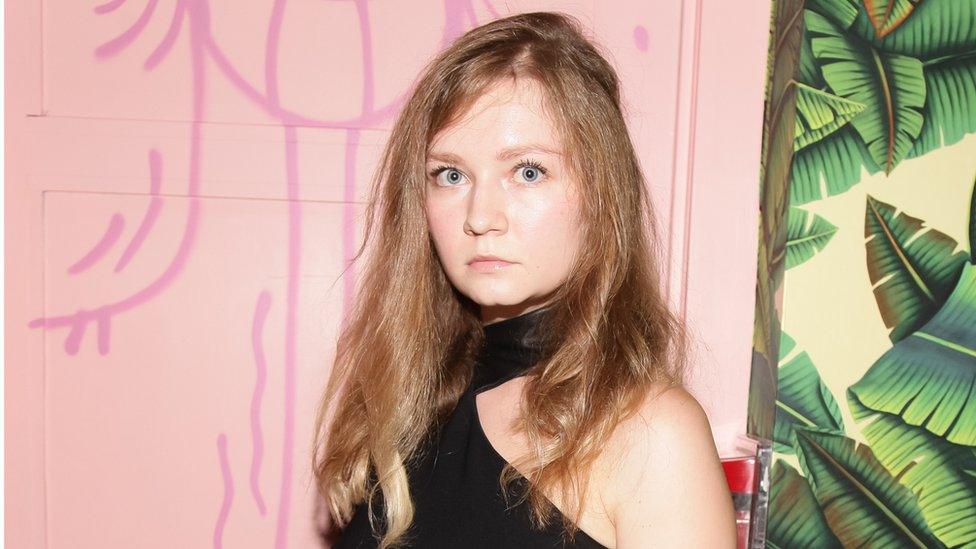Theranos scandal: Who is Elizabeth Holmes and why was she on trial?
- Published
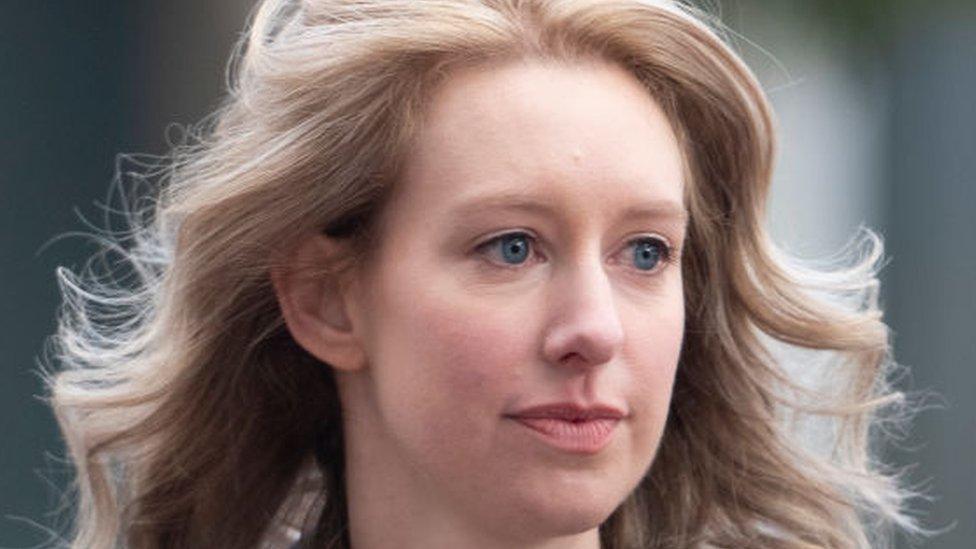
She was "the world's youngest self-made female billionaire", trumpeted Forbes magazine. The "next Steve Jobs", said Inc, another business magazine that put her on the cover.
In 2014, Elizabeth Holmes, then 30 years old, was on top of the world. A Stanford University drop-out, she had founded a company valued at $9bn (£6.5bn) for supposedly bringing about a revolution in diagnosing disease.
With a few drops of blood, Theranos promised that its Edison test could detect conditions such as cancer and diabetes quickly without the hassle of needles. Bigwigs from Henry Kissinger to general James Mattis sat on the board.
But by 2015, the seams were coming apart, and within a year, Holmes was exposed as a fake. The technology she touted didn't work at all, and by 2018 the company she founded had collapsed.
In January, she was convicted by a jury in California on four counts of fraud, each of which carries a maximum sentence of 20 years in prison.
The jury found her not guilty on four other charges and failed to reach a verdict on three more. Holmes, who had pleaded not guilty to all charges, sought a new trial but those requests were denied.
She was sentenced on Friday to 11 years and three months in prison.
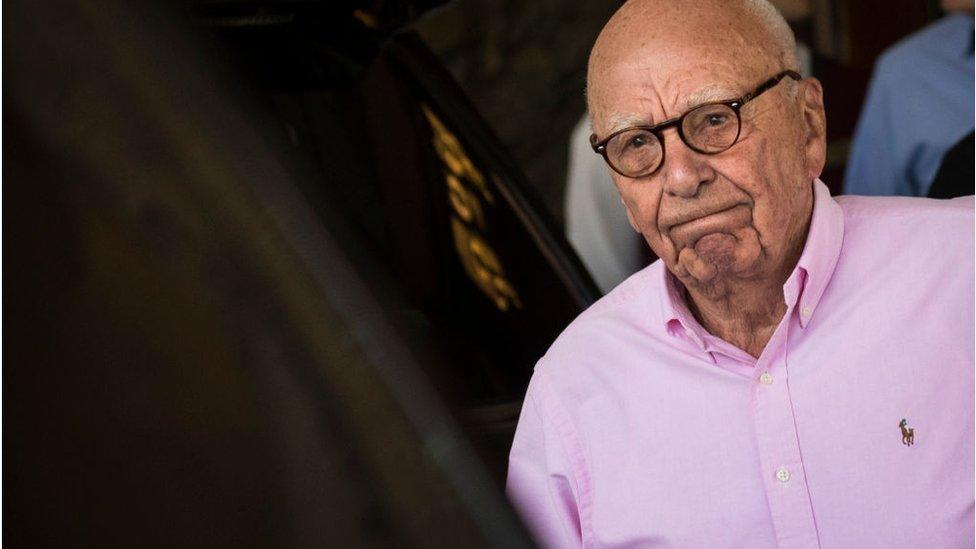
Media tycoon Rupert Murdoch lost £120m he had invested in Theranos
During the trial Holmes accused her ex-boyfriend and business partner, Ramesh "Sunny" Balwani, of emotional and sexual abuse at the time of the alleged crimes, impairing her mental state.
Balwani, 56, who faced the same fraud charges, was convicted in July and is due to be sentenced next month. He had called the claims "outrageous".
High pressure beginnings
Despite being the subject of a book, HBO documentary, TV series and an upcoming film, it is still unclear why Holmes took such a gamble on technology she knew didn't work.
She was raised in a comfortably well-off family in Washington DC, and was a polite but withdrawn child, according to people who knew her.
Inventor and businessman Richard Fuisz, 81, speculated there must have been immense pressure on Holmes to succeed. His family lived next door to the Holmes family for years, but they fell out when Theranos sued him over a patent dispute in 2011 (it was later settled).
Holmes's parents spent much of their careers as bureaucrats on Capitol Hill, but "they were very interested in status" and "lived for connections", he told the BBC. Her father's great-great-grandfather founded Fleischmann's Yeast, which changed America's bread industry, and the family was very conscious about its lineage, he said.
At age nine, the young Elizabeth wrote a letter to her father declaring that what she "really want[ed] out of life is to discover something new, something that mankind didn't know was possible to do".
When she got to Stanford University in 2002 to study chemical engineering, she came up with an idea for a patch that could scan the wearer for infections and release antibiotics as needed.
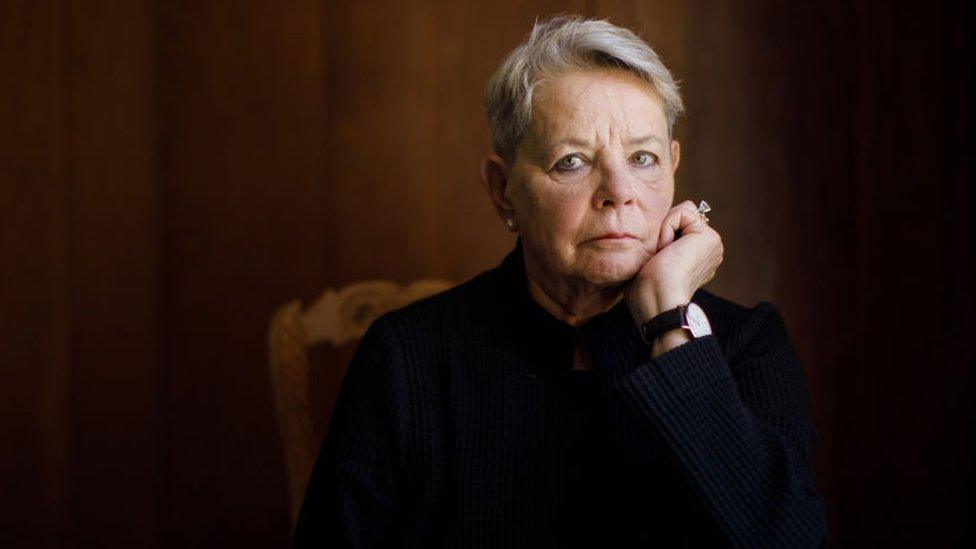
Dr Phyllis Gardner told Holmes her idea would not work
At 18, she already displayed an intransigence that would apparently continue and drive the company she would found the following year.
Phyllis Gardner, an expert in clinical pharmacology at Stanford, recalled discussing Holmes's skin-patch idea and telling her it "wouldn't work".
"She just stared through me," Dr Gardner told the BBC.
"And she just seemed absolutely confident of her own brilliance. She wasn't interested in my expertise and it was upsetting."
Meteoric rise
Months later Holmes dropped out of Stanford aged 19 and launched Theranos, this time coming up with an apparently revolutionary way of testing blood from a simple finger prick.
Powerful people were enthralled and invested without seeing audited financial accounts.
US Treasury Secretary George Schultz, media tycoon Rupert Murdoch and America's richest family, the Waltons, were among her backers.
The support lent her credibility, as did her demeanour.
"I knew she'd had this brilliant idea and that she had managed to convince all these investors and scientists," said Dr Jeffrey Flier, the former dean of Harvard Medical School, who met her for lunch in 2015.
"She was self-assured, but when I asked her several questions about her technology she didn't look like she understood," added Dr Flier, who never formally assessed her technology. "It seemed a bit odd, but I didn't come away thinking it was a fraud."
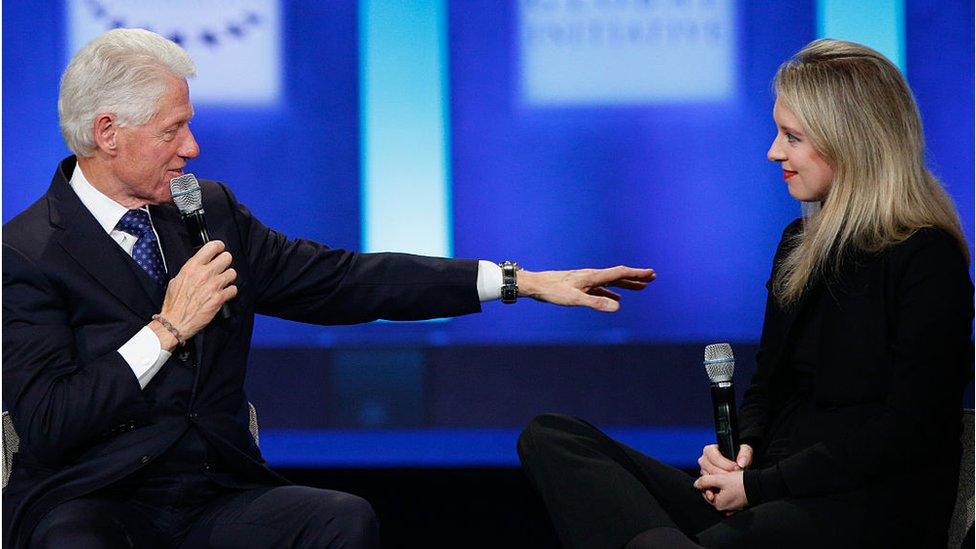
On stage with former US President Bill Clinton in 2015. At the time Ms Holmes was said to be the world's youngest self-made female billionaire
Dr Flier ended up inviting her to join the medical school's Board of Fellows, which he regrets, although she was removed when the scandal broke.
It began to unravel in 2015 when a whistleblower raised concerns about Theranos' flagship testing device, the Edison. The Wall Street Journal wrote a series of damning exposes claiming the results were unreliable and that the firm had been using commercially available machines made by other manufacturers for most of its testing.
Lawsuits piled up, partners cut ties and in 2016 US regulators banned Holmes from operating a blood-testing service for two years.
In 2018 Theranos was dissolved.
In March that year, Holmes settled civil charges from financial regulators that she had fraudulently raised $700m from investors.
But three months later she was arrested, along with Mr Balwani, on criminal charges of wire fraud and conspiracy to commit wire fraud.
Prosecutors said, external she knowingly misled patients about the tests and vastly exaggerated the firm's performance to financial backers.
As the Theranos scandal reached trial, commentators said it was remarkable how tightly Holmes clung to her original story, and people who knew her said they doubt she has changed.
Since the trial, Holmes has been living in California with partner William "Billy" Evans, 27, an heir to the Evans Hotel Group. They had a son in July 2021 and she is pregnant with their second child.
Holmes's attorneys had said she should not face prison time on the grounds that she was not a danger to society. They offered testimony from more than 130 people on her behalf, including Senator Cory Booker.
But prosecutors argued that she was "blinded" by ambition, which put "and will continue to put people in harm's way".
"She accepts no responsibility," they wrote in court filings. "Quite the opposite, she insists she is the victim."
Related topics
- Published15 March 2018
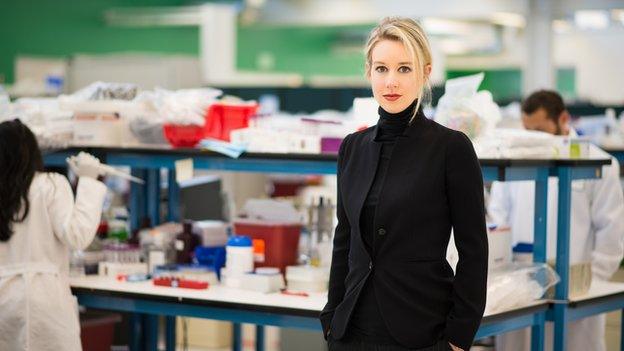
- Published15 June 2018
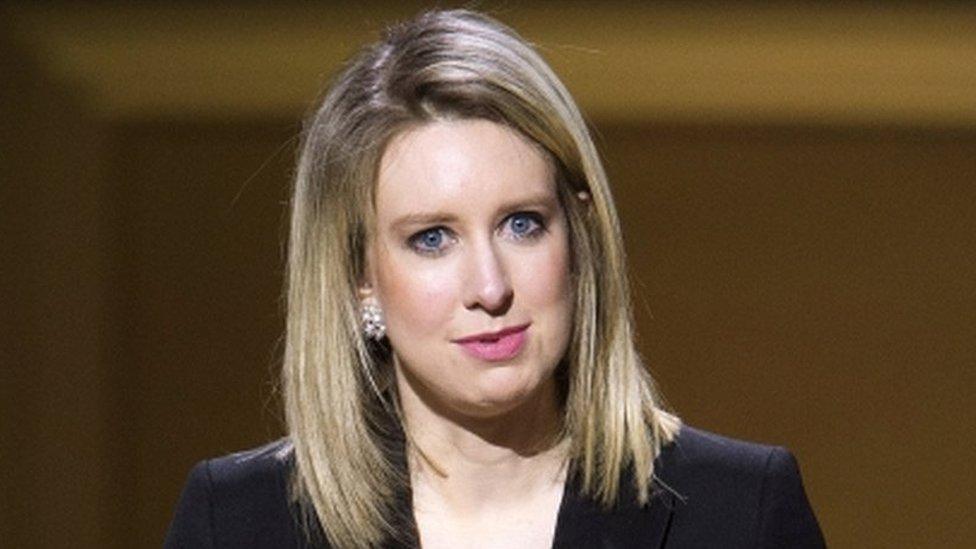
- Published14 March 2018
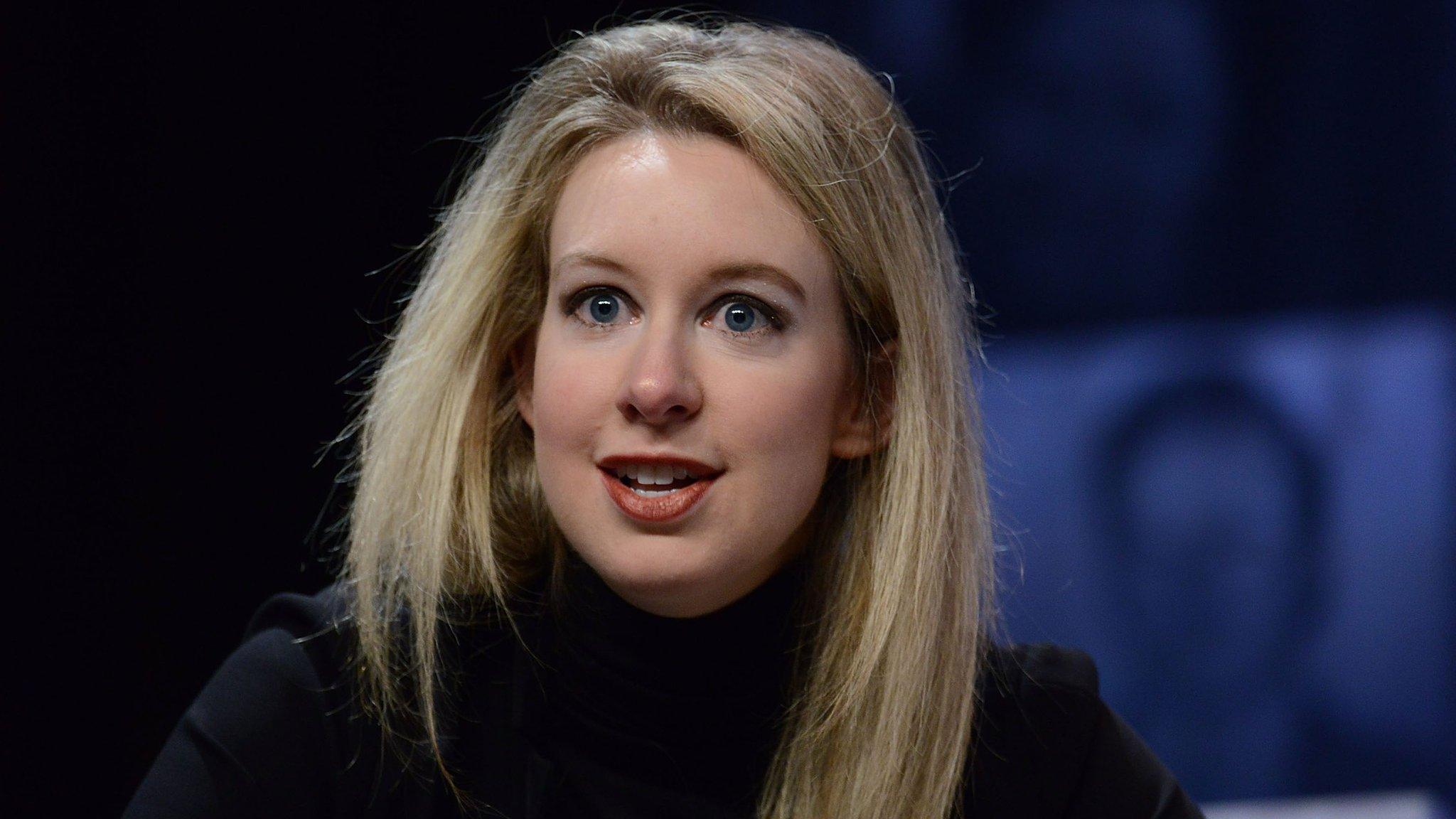
- Published24 October 2019
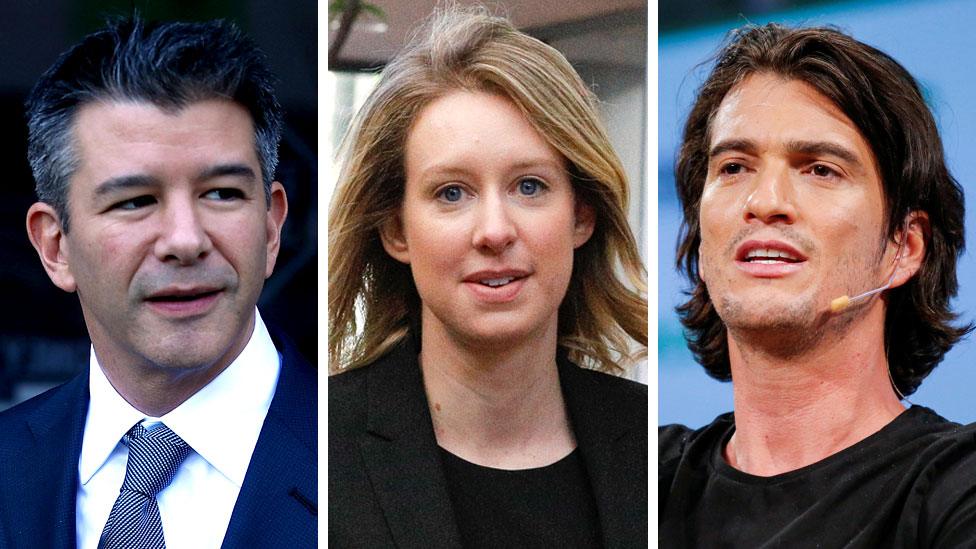
- Published26 April 2019
